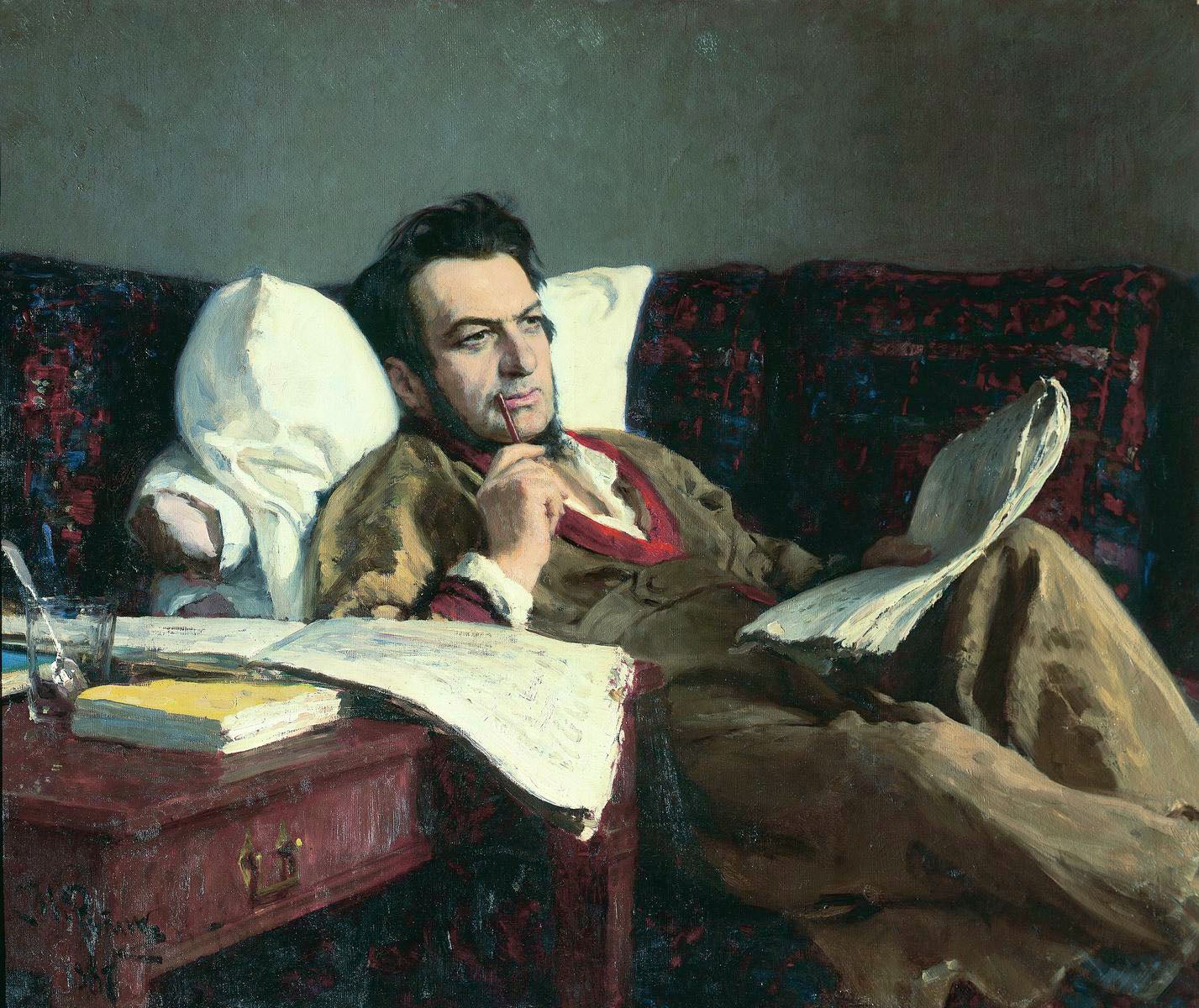On August 10th, 1842 Mikhail Glinka and a few friends passed a pleasant evening playing a first run-through of his opera Russlan and Ludmilla. When the full-scale debut took place, the experience was not so congenial–as Glinka reports in his memoirs.
During rehearsals it became clear that cuts would have to be made–plenty of them–to keep the action from bogging down. The sets left something to be desired. A castle looked more like a barracks. Flowers painted at the sides of the stage were ugly and dull and smeared over with gold leaf. A banquet table was represented by a sort of pulpit that jutted out of the stage. Beside it was something resembling a spindly gilded bush. The set had become a snare for the actors.
The singers were cool to Glinka after a newspaper article attributed scathing criticisms of them to him. Equally offended, some of the musicians played badly. At the end of one of the last rehearsals a friend of Glinka’s remarked, “My dear boy, it’s bad.” Glinka agreed to more cuts.
Stay informed on the latest news
Sign up for WPR’s email newsletter.
On the night of the premiere the lead soprano got sick and had to be replaced by a less capable understudy. Glinka felt sick too, as he usually did on opening night, but he remained hopeful. But as the opera progressed, the audience became less and less enthusiastic. Before it was over, the czar’s family left the theater.
When the curtain finally came down, the applause was lukewarm and there was some hissing–mostly from the stage and the orchestra. Nonetheless, some were calling for Glinka to take a bow. He turned to a friend in the director’s box and asked if he should go out.
“Go right ahead,” his friend replied. “Christ suffered more than you.”
Although it would not soon be free of its critics, on its better nights, Russlan and Ludmilla began to win audiences over, and within a few years it became one of the most popular of all Russian operas.
Wisconsin Public Radio, © Copyright 2024, Board of Regents of the University of Wisconsin System and Wisconsin Educational Communications Board.

